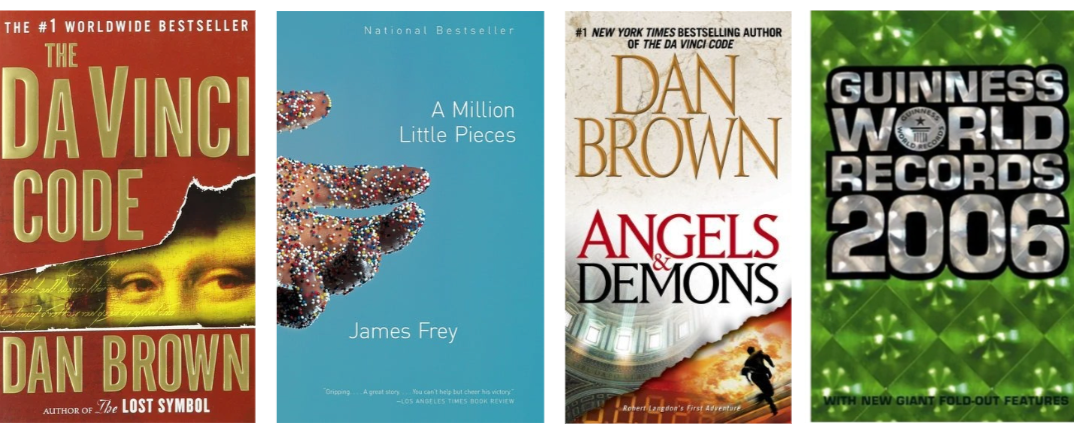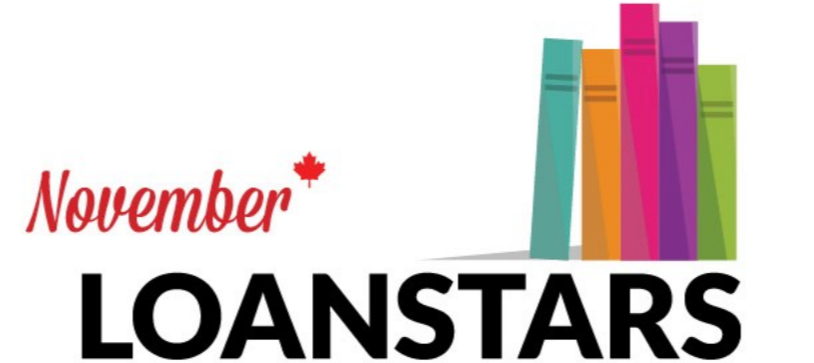Here at BookNet, we've had children's titles on the mind since we opened up voting for our new Loan Stars Jr. list in November. The first Loan Stars Jr. list, consisting of Juvenile and Young Adult titles, will be released this March and while we're waiting to see what will make the inaugural list, there's been a lot of reflecting and bonding over memories of the books and library programs that led us to dedicate our lives to making them. It also raised questions about the state of children's publishing in Canada and the role that libraries play. So we decided to take our questions to children's librarian, Scott Robins, the Children's Services Specialist at the Don Mills branch of the Toronto Public Library.
(Scroll down for a transcript of the conversation.)
Want to make sure you never miss an episode of the podcast? You can subscribe for free on iTunes, Stitcher, Pocket Casts, TuneIn, or SoundCloud.
Connect with Loan Stars:
Loan Stars website
Loan Stars Facebook
Loan Stars Twitter
Loan Stars Instagram
Loan Stars Tumblr
Loan Stars Pinterest
Loan Stars Goodreads
Transcript
Elizabeth Barker: Hello. Elizabeth Barker here, project manager of the Loan Stars project. I've taken over the podcast this month because it's a library-oriented episode. And not at all because I strongly offered after overhearing the podcast plans for February.
This is my very first episode as host, and I hope you're as excited for it as I am. Because this episode is all about children's books. Here at BookNet, we've had children titles on the mind since we opened up voting for our new Loan Stars Jr. List back in November. The first Loan Stars Jr. List consisting of juvenile and young adult titles will be released this March, and while we're waiting to see what will make this inaugural list, there's been a lot of reflecting and bonding over memories of the books and library programs that led us to dedicate our lives to making them.
It also raised questions about the state of children's publishing in Canada and the role libraries play in that. So, we decided to take our questions to a children's librarian, and we were lucky enough to be able to sit down with Scott Robins, the Children's Services Specialist at the Don Mills branch of Toronto Public Library.
Scott is responsible for selecting children's books for 16 branches. He's also the co-author of, A Parent's Guide to the Best Kids' Comics and has promoted and reviewed children's books for over 15 years. Holding positions at Scholastic Canada, Kids Can Press, The Toronto Comics Arts Festival, School Library Journal, and Canada's Children's Book News. Scott, thank you for coming to visit.
Scott Robins: No problem.
Elizabeth: And for just doing this. This is amazing.
Scott: My pleasure.
Elizabeth: What do patrons think you do and what do you actually do?
Scott: I think the response I get the most is, "Oh, it must be great being able to read all day," which is obviously, I mean, we do a little bit of reading, but, for the most part, it's not a job where I sit at my desk and read all day. What I actually do is a lot. So it's usually, it's sort of juggling a million things in the air, prepping for programs, working on selection work, maintaining the collection, working the reference desk, dealing with incidences, visiting schools, having schools visit us.
So, it's the kind of job that if you enjoy doing a lot of things in a day, being a librarian, especially a children's librarian, is perfect for you. Because you're just constantly on the go, and doing, and having a million balls in the air.
Elizabeth: So it's kind of those, every day is something new, you can't really like pin it down to daily tasks?
Scott: Yeah. It is pretty much like that. Answering emails, putting out fires, booking programs. It's a little bit of everything. And the other one that I get besides the, "Oh, you must get to read all day," is, "That must be so relaxing." And, as a children's librarian, I don't think you're ever relaxing because you're constantly moving, bending over, putting books away that you've had for programs, cleaning messes that, you know, for crafts that you do, taking care of kids, running around, making sure kids aren't running out of the room or anything like that. So, yeah, it's a lot.
Elizabeth: Now if we go to more like the technical, industry side of things. So, there's a lot of debate, especially amongst publishers about intended audience and like what's considered an appropriate age range. So, do you have a standard rule of thumb that you can kind of pass along to sort of highlight this issue and sort of, like how big of a range is too big? Is it like five to 10 seems kind of?
Scott: Five to 10 is pretty hard. I mean, we really look ... we use the sort of the formats of children's publishing in general to kind of determine where things go and kind of what the age ranges are. So picture books are generally for kids two to six, advanced picture books, which is a collection that we have at Toronto Public Library, which are picture books that are either longer or that are sort of exploring more mature topics, I mean, I would say that those would probably range from six to, and in some cases, probably all the way to 12, depending on the application and how they're being used.
I mean, the advanced picture books are used by teachers a lot in the classroom. I would probably say, beginning readers are, I would say, well, beginning readers are tools meant for kids who are beginning to read. So, wherever the child is at in terms of their reading skills, but I would probably say, I would say four to six. And then early chapter books is kind of like six to 10, and then juvenile fiction I would probably say is like eight to 12.
So there is some overlap between those different formats. But, I mean, that's a pretty good kind of standard sort of rule for the age ranges in terms of the formats that they're meant for the kids who are reading those books.
Elizabeth: And it's kind of a sort of symbiotic relationship between content and format, because, I mean, you have so much high-low sort of material probably.
Scott: Absolutely, absolutely. And within those sort of formats, you have early reader chapter books that are best for kids who are just kind of moving from beginning readers to early readers. But then they have ones that are a little bit, are slightly more sophisticated, that sort of walk that line between early chapter book and an actual juvenile fiction novel.
Elizabeth: Yeah. Can you answer the debate once and for all? What makes a YA book different from an adult title? Because this is something I get all the time working in publishing, and I cannot give you an answer.
Scott: Specifically like a novel that's for teens?
Elizabeth: Yeah, that would have a YA tag. So like, The Hunger Games versus, I think Battle Royale is actually not considered a YA book, but it's essentially the same story.
Scott: I mean, I think it probably has to do...I mean, I'm not a teen librarian, so I can only sort of speak to my own sort of personal opinion. I think that the way that it's written, I think that teen books are usually fast-paced, lots of dialogue, they can be heavily plot-driven. But, again, it's not a hard and fast rule. There are teen novels that are more sort of introspective and more about character. But I think that it's a really hard thing to grasp because it's this, it's a sort of like energy that YA authors have that just comes through in their writing.
Elizabeth: Would you find that is what kind of makes it different from a middle-grade book?
Scott: I think that the difference between a middle-grade book and a YA book is quite different. I think that a middle-grade book really explores a main characters' relationship with just their family, and also the kind of, like making sense of the world around them. Whereas a YA book is more about a main characters' relationship with their peers, and also trying to kind of figure out who they are in this world we're living in. So it's a lot more about identity and things like that.
But, the one thing that we are seeing is that there is a trend that things that were sort of more, topics that were more kind of reserved for YA books are starting to kind of trickle down into middle grade, but of course being explored in an age-appropriate kind of way, like suicide, or divorce, or alcoholism, or mental illness, or drug addiction, all those kinds of things are coming up.
I think the big one that is kind of still definitely reserved for YA is sex. So, there is very little, there are very little middle-grade books, actually probably none that actually go into, you know, ...
Elizabeth: An adult relationship.
Scott: Exactly. I mean, you get sort of crushes, but it's kind of that innocent kind of, you know, pre-adolescent kind of...
Elizabeth: First kiss kind of...
Scott: Yeah.
Elizabeth: There is a defined line. That is good. That is good.
Scott: Yeah, that's it. And also, two, language. So, in YA books, lots of swearing, in middle-grade books, probably no swearing.
Elizabeth: So, how do you find these books? How do they come to you?
Scott: So, I'm one of the selectors for TPL in terms of children's books. So I buy books for 16 branches in the city, including the one that I work at, which is Don Mills. And so there are selectors for each area of the city and we are composed of a committee called the Children's Material Selection Committee. Good name for it, right?
And so what happens is that we have a committee chair who meets with all the different publisher reps, and all the publisher reps bring all of their material to her. They present the books, and so that's kind of where we find out about most of the titles that we purchase for the library. Every once in a while we miss stuff, it just happens with the amount of books that we're buying. And so what happens is that, if there's a book that we don't have, the public can suggest a book for us to purchase, and more often than not we do buy the books for the collection. Maybe not in huge numbers.
And we do get a lot of requests for self-published material. And we have definitely a little bit more of a strict kind of review process for that. We expect that the book have some kind of review, either from a professional source, or bloggers, things like that. Also, too, we like to read the manuscript, read the actual book and see if it's of a specific quality. Every once in a while you do find stuff that just doesn't quite work. And a lot of it is that, in sort of the lack of understanding of what the format is, what you can do in the format, and what kind of content you can have in the format.
Elizabeth: So do you find that if a book comes to you, and it says, "This is for five-year-olds" and you're reading it and it's definitely talking about something a 12-year-old would be going through, do you override sort of what the publisher has sent you in their metadata?
Scott: Yeah. I mean, we don't really ... we don't pay super close attention to a lot of that, that metadata. I mean, we use Whitehots to purchase all of our books, and they have all the information with the books. All the data is in there, and a lot of times we will go by what the publisher says. But every once in a while we will move something into a different area of the collection because we feel it would be better suited and will actually reach the audience that it's meant for. But I would say that that doesn't happen a lot. That's few and far between.
Elizabeth: That's good.
Scott: I mean, the perfect example is ABC books. People love to do ABC books. And we definitely see ABC books that come across our desks that sometimes are very sophisticated, very artistic, which is beautiful. And a lot of times those books will end up in our advanced picture book section. But as an ABC book, I mean, an ABC book is meant for kids who are learning how to do ABCs, so, there is a certain level of disconnect there. But, I mean, if it's beautiful, and artistic, and gorgeous, we're still gonna buy it for our collections, we just may not have it in the regular picture book collection.
Elizabeth: Actually, this is a good lead into our next question, which is like, we hear one of the benefits and challenges of being a youth librarian is getting children actually interested in reading. So, how do you approach reluctant readers?
Scott: Well, I mean, the thing is, I'm really super lucky that I've been in this position now for six years in the Don Mills community. And we, as part of our work, we visit all the schools in the area. Usually, we visit all the kindergarten classes, we visit all the grade four classes. So the kindergarten classes is to sort of introduce children to the concept of a library, give them an opportunity to get their own library card. And then the grade four is kind of like, "Hey, remember us? We're the library and we've got cool stuff." Because grade four is kind of where you start to see the interest in reading start to wane. And so we do visits for it with all the grade four classes.
But we do class visits a lot. And we offer, you know, we give teachers the opportunity to come to the branch with any grade level. And so, I mean, being part of the Don Mills community for six years, I know a ton of the kids, so, I have like buy-in from, not just the kids, but also the parents, that they trust that the recommendations that I'm giving these kids are gonna be good recommendations.
In terms of reluctant readers. The thing that I like to do the most is provide as many options as possible. And the other thing I like to do is talk directly to the child. Because a lot of times parents will try to steer them into a specific kind of reading that they want them to have, and a lot of times that isn't always the best starting point. So, I talk directly to the child and I say, "You know, what TV shows do you like? What movies do you like? When you did read something last, what was your favourite book?" Or, "When you read, what are the things that you like, you know, you like in terms of subject matter, or, you know, do you like funny books? Do you like fantasy?" Things like that.
And then, what I do is I provide multiple options for the kid. Obviously, with the parent there as well. And then I try to kind of like, "We're providing lots of options for your child so that they can select the one they want to read, so they feel kind of empowered that they're actually making the choice that it's the thing that they want to read."
A lot of parents will come to me and say, "I can't get my kids to stop reading graphic novels." And I always say, "That's not a problem. They should continue."
Elizabeth: Here's more.
Scott: There are so many, I mean, graphic novels for young readers is sort of the biggest growing category, I think, in children's publishing now. I'm not sure if that's true, but I think it is.
Elizabeth: Anecdotally, yeah.
Scott: Anecdotally, exactly. I always say, "Well, if you want your kid to also read a prose book, don't shut them down from reading graphic novels, because that's creating a negative experience of reading." I always say, you know, "Give them a graphic novel, and then give them an actual prose book that's sort of similar to the graphic novel they wanna read so that there's some sort of familiarity between the two and that there's not like a "This is the reading I love to do. And this is the reading I'm being forced to do.""
Elizabeth: Yeah. I'm finding too that there's sort of a cross-platform ... so, an example is, Buffy the Vampire Slayer which of course went to comic books after the show. But then I found a kids book, like an actual picture book. And it's sort of kind of guiding them through the journey, so you get to stay with these characters as you grow reading. It seems to be a pretty good idea in terms of reaching I think children's interests.
Scott: Right. And actually there's a new Buffy sort of hybrid graphic novel prose book that just came out. So you should definitely check that, if you're a Buffy favourite, just check that out too.
Elizabeth: I know, I'm going through it right now. I'm on season six. I'm gonna do it, I'm very excited. So, what type of content do you wish was actually included more in Canadian libraries?
Scott: I mean, I think the big topic right now in publishing in general is diversity. Characters of colour as main protagonists, LGBTQ characters as protagonists in books for kids, kids with different, either mental illness or differentiated learning, or any kind of like books that feature characters that have some kind of difference, I think is what's needed more in publishing.
And this is echoed by, you know, ALA, and so many other different places, so I'm not really, I'm kind of preaching to the choir kind of thing. And we're definitely seeing more of that and seeing them being successful, which is great. And winning awards. And if you look at sort of the Newberry books that won the last few years, there's been some great diverse books in those lists, so, yeah, definitely more diversity. And also too, I think that mental health is something that's definitely gonna become a bigger topic that is gonna be discussed in terms of, not just teens, but also kids, and having more books around the idea of like, you know, kids and mental health I think is really important.
Elizabeth: That's fascinating. Thank you so much for stopping by. I learned a lot. I hope our listeners did as well.
Scott: Thank you.
Elizabeth: The Loan Stars Jr. List will be announced the first week of March 2019. These titles have been recommended by library staff across Canada as essential titles for young library patrons. Our hope is that these books will be prime representatives of the possibilities of children's publishing.
We look forward to announcing a new list every other month. And you can be the first to know by following us on pretty much all the social media platforms. There's a LoanStarCA out there, but you can also just click the links in the show notes. Another big thank you to Scott, who passed on so much amazing knowledge. And thank you, dear listener, for making it this far in the podcast. I hope you've enjoyed it and I also hope that they'll let me come back because I don't think I swore anything.
And we'd also like to thank the Government of Canada for their ongoing support for this project through the Canada Book Fund.














Happy holidays!